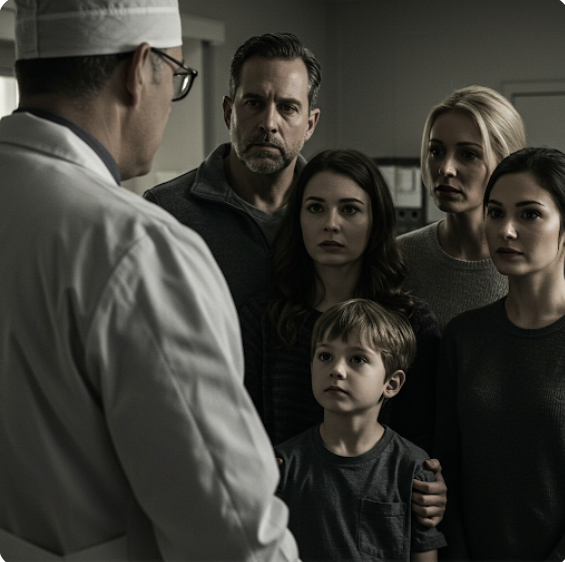“Your son has osteosarcoma,” the doctor said to the parents, with their child quietly looking on. “I cannot tell how extensive it will be, but it will be significant.”
He delivered the most devastating news these parents had probably ever heard—without emotion, as if commenting on the weather.
As a nurse on the surgical team, I saw the parents consumed by shock. Before they could ask a single question, the doctor left the room to continue his rounds. I knew they needed explanations. I could feel their fear and confusion, but all I could say was, “I’m sorry, I’m not authorized to explain more.”
There is a strict hierarchy in medicine: physicians make the decisions, and nurses are expected to follow them.
But my conscience didn’t allow me to remain silent. I found the doctor and asked him to return.
“How do you think the parents took the news?” I asked.
He replied, “They looked fine.”
I said gently, “They’re not.”
I urged him to go back, sit with them, and answer their questions. Later, I learned he wasn’t being uncaring—he cared deeply. But he was grappling with the fact that he couldn’t cure the boy’s cancer.
Doctors and nurses both have values that guide their actions. We often know what we ought to do, but circumstances prevent us from doing it. I knew I couldn’t live with myself if I walked away at a moment when the family needed someone most.
Moral suffering affects all of us—surgeons, physicians, and especially nurses. We provide continuous care, stand by the dying, and support families through unimaginable pain. In some cases, moral suffering lasts a lifetime. Sometimes, it stems from systemic injustice—when one patient receives life-saving treatment while another doesn’t simply because of resources or access.
The nurse becomes the implementer and the closest witness to both the patient’s final breath and the family’s silent screams.
I often wonder—can moral suffering be avoided in healthcare? In my quest for an answer, I’ve come to believe that a certain amount of it is essential. Because it reminds us of what’s right, what’s human, and what truly matters in the most complex of moments.
Moral suffering keeps us connected to compassion. It pushes us to speak up when silence feels easier. It helps us recognize the humanity in every patient and family, even when the system feels cold or detached. While we may not always have the power to change outcomes, we do have the power to stand beside those who are hurting. In the end, that may be the most healing act of all.
